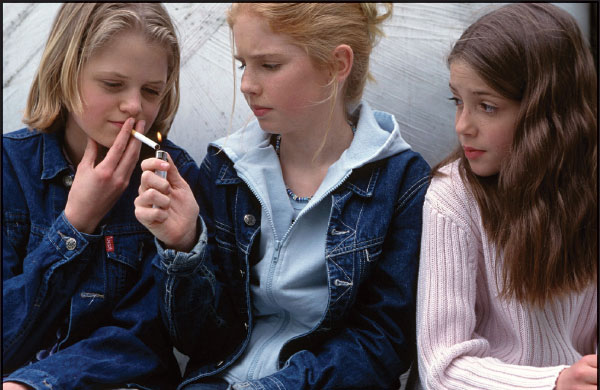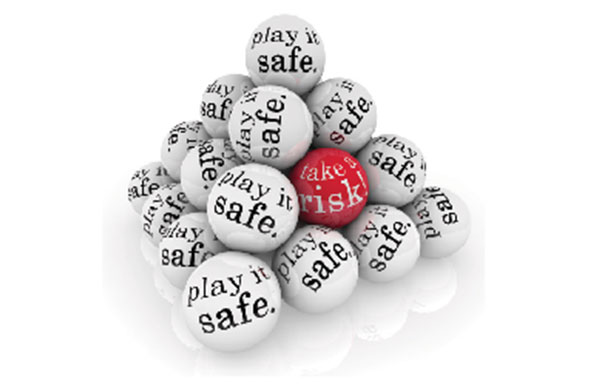 If you think school is all about books, tests and homework, think again. On the surface, it certainly seems like it, especially considering the amount of homework the kids come home with. But if you take a good look at what really goes on in school, you’ll discover that it has just as much to do with social interaction and learning interpersonal skills as it does with mastering the art of reading or writing.
If you think school is all about books, tests and homework, think again. On the surface, it certainly seems like it, especially considering the amount of homework the kids come home with. But if you take a good look at what really goes on in school, you’ll discover that it has just as much to do with social interaction and learning interpersonal skills as it does with mastering the art of reading or writing.
I have been deeply involved in the field of education for over 25 years and I’ve watched children struggle. I think that the child with a social “disability” is at a greater disadvantage than one who has trouble reading or taking tests. Because after all is said and done, everyone needs to have friends.
A child who has trouble reading can still have an active social life. A youngster who can’t seem to pass her tests can still be the captain of the dodge ball team. I’ve seen resource room students rise and shine in the school choir and I’ve seen kids with learning disabilities group together with their peers for a trip to the mall.
But the socially inept child will have difficulty being accepted in any of these venues. Social awkwardness is like a shadow: it follows you everywhere you go. These children don’t suffer strictly during school hours. They suffer every waking moment of their lives. This is why I have focused much of my work on social, as well as academic issues.
For most of us, social skills training actually begins almost from the moment we are aware of our surroundings. We don’t even realize it, but back when we sat in that baby carriage while our mother wheeled us to the grocer, we were picking up cues on how to speak to people, how to behave in public, what to wear, how to react to situations, etc. These cues were constantly being internalized until we were old enough to walk and talk on our own. By then, most of us learned the basic lessons of how to act properly in many social situations.
But there will always be children who, through no fault of their own, missed out on some of these critical cues. Many researchers feel that this is because they are not genetically programmed the way the rest of us are. To oversimplify the concept, think of it as if someone was born with blue eyes. Perhaps he would really have preferred brown eyes, but that’s just the way he was born and there’s really nothing (aside from wearing colored contact lenses) that can be done about it.
Fortunately, there is quite a bit which can be done for the child who lacks social skills and the sooner it’s done, the better off he or she will be. In a recent study, “significant differences were observed” between groups of children who had some school-based social skills training sessions and those who didn’t.
After obtaining parental consent, the researchers screened middle school children and evaluated their behavior and social skills. Two groups of children were eventually formed. One would be assigned to social skills training sessions and the second group would serve as a control group. According to the study, “The children in the intervention group were given training sessions, led by a graduate psychologist, which were conducted for one hour twice a week and lasted four weeks.” This was augmented by additional booster sessions. Each session focused on a specific aspect of social interaction including group discussion, modeling, behavior rehearsals and role play. Sessions followed a pre-arranged structure, which included a discussion of previous homework, warm-up exercises, and group instruction on the theme of the session. Sample themes include coping with bullying, responding to criticism, asking for help, making friends and giving compliments.
In the end, the children were re-evaluated. The study tells us: “The intervention group displayed significantly fewer behavior problems than at pre-intervention, while the control group remained the same.” Parents also reported that these results were maintained at home. In short, the school-based intervention sessions made a distinct difference in the children’s social behavior both in school and at home. In fact, the results remained encouraging, even after a six month follow-up study.
This is good news for those of us who feel that intervention is key to enhancing proper social skills. It is also good news for parents and teachers who deal with these children on a regular basis and recognize the problems that they encounter, but do not know how to help the child. Somehow, we rush to tutors and to special educators every time we see a kid who is slipping behind in his schoolwork. But if we see a child slipping dangerously in the social arena, we are reluctant to do anything about it, hoping that somehow he will outgrow it, or that she will eventually be accepted for who she is.
Many parents don’t feel comfortable telling a child that he has a problem and recommending that he be evaluated and eventually trained. But we don’t have to. There are plenty of other ways to approach the issue through the back door, so to speak. We can tell the child that we’re sending him for an “enrichment” program, or for tips on doing well in school. We can tell him that these sessions are going to make him happier and more productive. Approach the situation naturally and with confidence, and your child will respond in kind. I think that deep down he will be relieved that he is going to be helped.
And besides, what’s the alternative? To watch him suffer in silence? To see him hoping desperately to be included in group activities, but never to be counted in? To feel his pain and his heartbreak? And what does the future hold for this child?
As parents and educators, we are responsible for the well-being of our kids. That doesn’t just mean making sure they eat their vegetables and wear a sweater to school when the weather gets cold. It also means staying mindful of their emotional needs and their social development. It means seeing that they’re happy and have a certain sense of self-confidence. It means feeling good about themselves and about their world. Don’t wait for those negative feelings to lead to frustration and low self-esteem. Take care of the problem now, while it’s still manageable. And watch those children grow into healthy, productive and self-assured adults.
_____________
Mrs. Rifka Schonfeld founded and directs the widely acclaimed educational program SOS, servicing all grade levels in secular as well as Hebrew studies. She offers teacher training, consulting services and evaluations. She has extensive expertise in the field of social skills training and focuses on working with the whole child.



